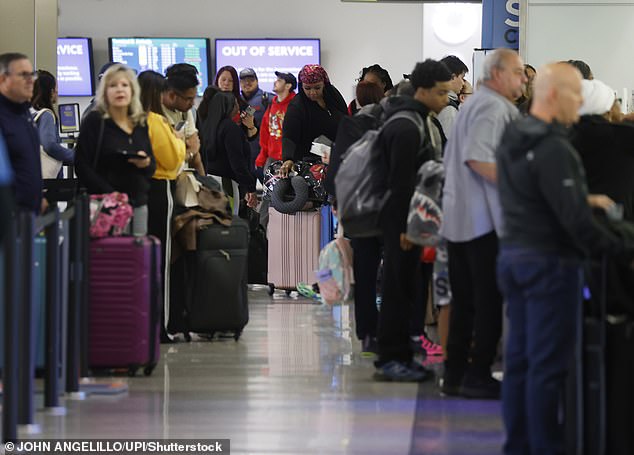Rising Concerns as Tropical Storm Disrupts Air Travel
An approaching tropical storm in the Gulf of Mexico has triggered a series of ground stops and extended delays at major airports across the entire East Coast. The Federal Aviation Administration (FAA) has implemented multiple ground stops at key airports, affecting travel plans for thousands of passengers. This weather event has created a ripple effect, causing significant disruptions in air traffic and leading to substantial flight delays.
Impact on Major Airports
The storm’s influence has been felt most acutely in several major cities, including New York, Florida, and Washington, D.C. These areas have seen a surge in flight cancellations and delays, with some travelers experiencing wait times of up to three hours. The FAA has taken proactive measures to ensure safety, but these actions have led to congestion at airport terminals and increased stress for passengers.
More than a dozen major airports are currently experiencing ground delays. These delays are not only affecting domestic flights but also international connections, compounding the challenges faced by travelers. Airlines have had to adjust their schedules, which can lead to further complications for those with tight connections or time-sensitive itineraries.
Ongoing Developments
As the storm continues to develop, the situation remains fluid. The FAA is closely monitoring the weather patterns and will likely issue additional updates as needed. Travelers are advised to check with their airlines for the latest information on flight status and any potential changes to their travel plans.
This disruption highlights the vulnerability of air travel to severe weather conditions. While the FAA and airline companies work to manage the situation, passengers are encouraged to remain flexible and prepared for possible changes. It is also important for travelers to stay informed through reliable sources and to consider alternative transportation options if necessary.
Tips for Travelers
For those planning to travel during this period, here are a few tips to help navigate the challenges:
- Stay Informed: Regularly check the FAA website and your airline’s official channels for updates on flight statuses and any new restrictions.
- Plan Ahead: If possible, book flights with more flexibility, such as non-stop routes or earlier departure times, to minimize the risk of being affected by delays.
- Prepare for Delays: Carry essential items such as medications, snacks, and entertainment to make the waiting time more comfortable.
- Consider Alternative Routes: If your travel plans are significantly impacted, explore other transportation options like trains or buses, which may be less affected by the storm.
Conclusion
The ongoing tropical storm serves as a reminder of the unpredictable nature of weather and its impact on daily life, especially in the realm of air travel. As the situation evolves, it is crucial for travelers to remain adaptable and informed. The FAA and airline operators are working diligently to manage the disruptions, but the best course of action for passengers is to stay vigilant and prepared for any changes that may arise.







